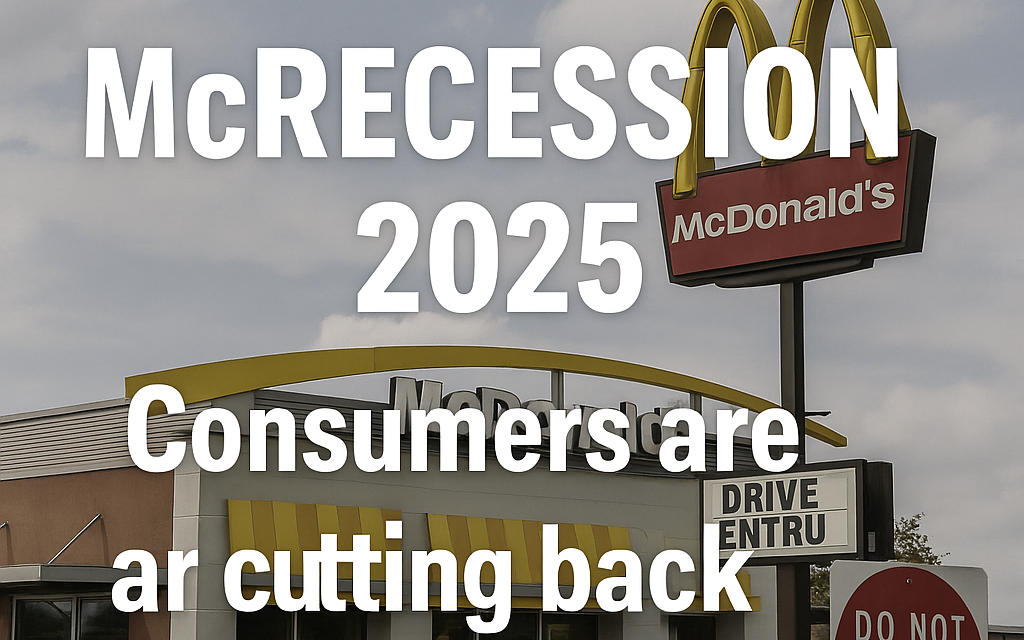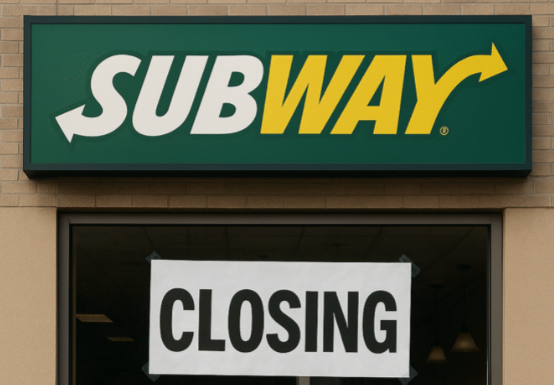McRecession 2025 : As economic uncertainty grips consumers across the globe, even fast food giants like McDonald’s are feeling the sting. The term “McRecession” has started gaining traction, describing a trend where consumers are pulling back from everyday conveniences such as fast food—signaling potential red flags for broader economic behavior. In 2025, this shift has become more pronounced than ever.
McDonald’s Sees Spending Drop Amid Economic Worries
McDonald’s has recently reported its worst quarterly performance since the height of the COVID-19 pandemic. According to East Idaho News, customer traffic is down, particularly among low-income consumers. This demographic, which historically forms the backbone of McDonald’s customer base, is cutting back amid inflationary pressures, rising housing costs, and stagnating wages.
In its Q1 2025 earnings report, McDonald’s revealed a 1% drop in global spending, as noted by The New York Times. While this number may appear modest on the surface, it marks a significant departure from the brand’s usual trend of steady growth—especially in markets like the U.S., where consumer spending has generally been resilient.
Why Are Consumers Cutting Back?
Several key factors are driving this downturn:
- Persistent Inflation: Despite easing slightly, inflation continues to affect everyday expenses like groceries, rent, and fuel, leaving less disposable income for dining out—even at value-oriented establishments like McDonald’s.
- Shift in Consumer Habits: Budget-conscious consumers are choosing to cook more meals at home or opt for less expensive alternatives. This trend has especially impacted fast casual and quick-service restaurants.
- Sticker Shock: Prices on menu items have steadily climbed over the past few years. A combo meal that once cost $5 now often exceeds $10, pushing it out of reach for budget-sensitive customers.
- Rise of Competitors and Convenience: With more grocery delivery options, meal kits, and cheaper alternatives like dollar stores offering microwavable meals, the fast-food advantage of speed and affordability is less compelling than before.
What Does This Mean for McDonald’s Strategy?
McDonald’s leadership acknowledges the shift and is preparing to adapt. CEO Chris Kempczinski mentioned in recent earnings calls that they are working to “bring affordability back to the forefront.” Key strategies include:
- Value Menus: Revamping the value meal options to better appeal to cost-conscious diners.
- Localized Pricing: Tailoring prices based on regional economic factors.
- Digital Loyalty Programs: Encouraging repeat visits through app-based discounts and personalized offers.
Additionally, McDonald’s is ramping up automation efforts to manage operational costs. From AI-driven drive-thrus to self-service kiosks, the company aims to maintain profit margins even with reduced foot traffic.
Is This Just a McDonald’s Problem?
Not at all. Starbucks, Wendy’s, and other major fast-food chains are seeing similar trends. The “McRecession” isn’t just about McDonald’s—it’s a broader reflection of economic anxiety and changing consumer behavior. Axios notes that middle- and lower-income consumers are increasingly sensitive to price changes, affecting both discretionary and non-discretionary spending.
The Bigger Picture: A Canary in the Coal Mine?
The downturn at McDonald’s could be seen as a canary in the coal mine for the broader U.S. and global economies. Historically, when consumers pull back on small indulgences—like fast food—it often precedes wider spending slowdowns. Economists are keeping a close eye on these patterns as a signal of potential economic contraction or stagnation.
Moreover, with interest rates remaining high and no immediate signs of significant wage growth, this pullback could extend through 2025 unless policy changes or market corrections stimulate renewed confidence.
Conclusion : McRecession 2025
The McRecession of 2025 is more than a clever headline—it’s a reflection of real economic stress. As McDonald’s reports declining sales and a cautious customer base, the company faces the dual challenge of rebuilding trust in affordability while maintaining operational profitability.
The months ahead will be critical. Will McDonald’s successfully pivot to reclaim its low-cost fast-food crown? Or is this the beginning of a longer, deeper shift in how and where consumers choose to spend their limited dollars?
One thing is certain: when McDonald’s sneezes, the entire fast-food industry catches a cold.
You may like to read about :
Warren Buffett Steps Down: What Gregory Abel’s Leadership Means for the Future of Berkshire Hathaway



